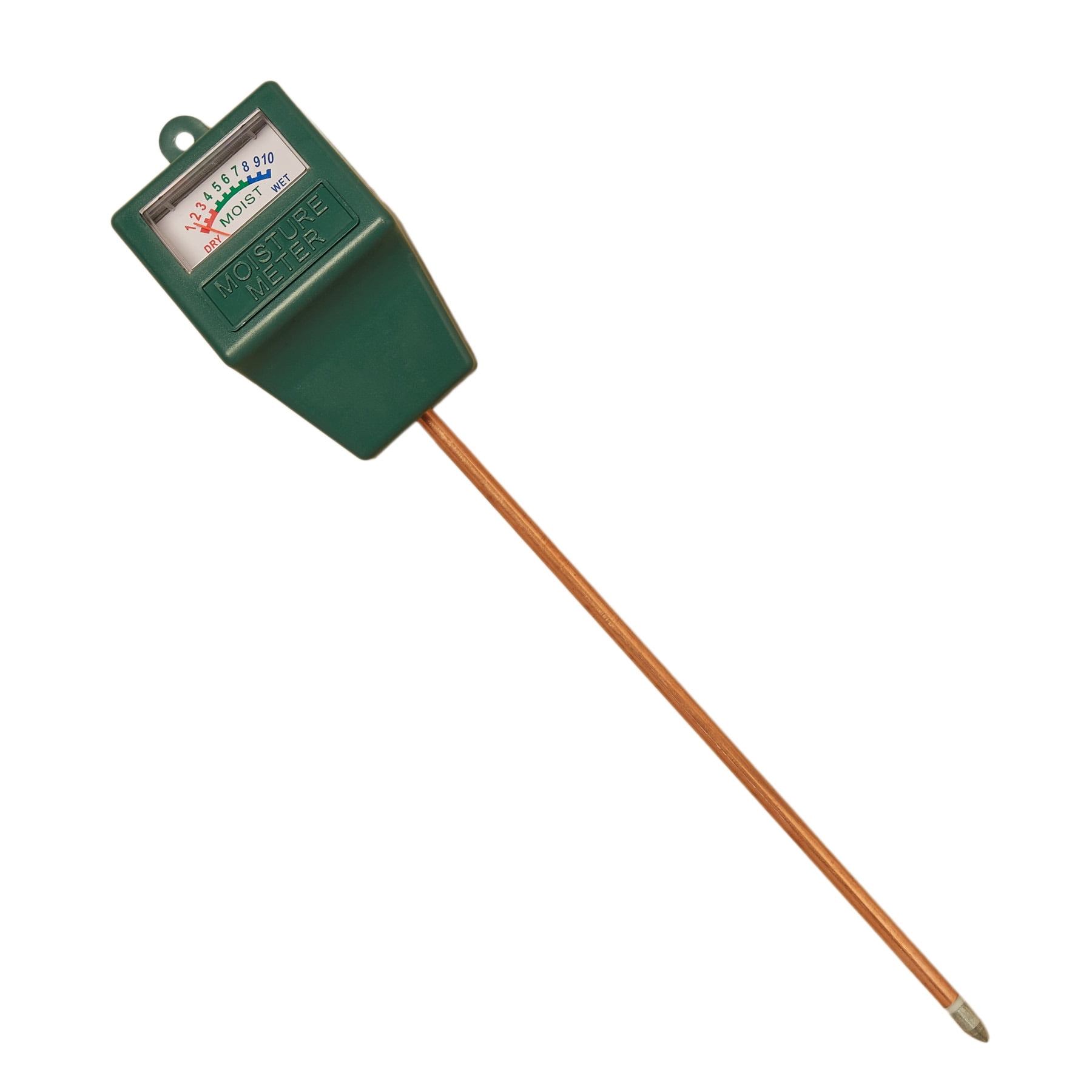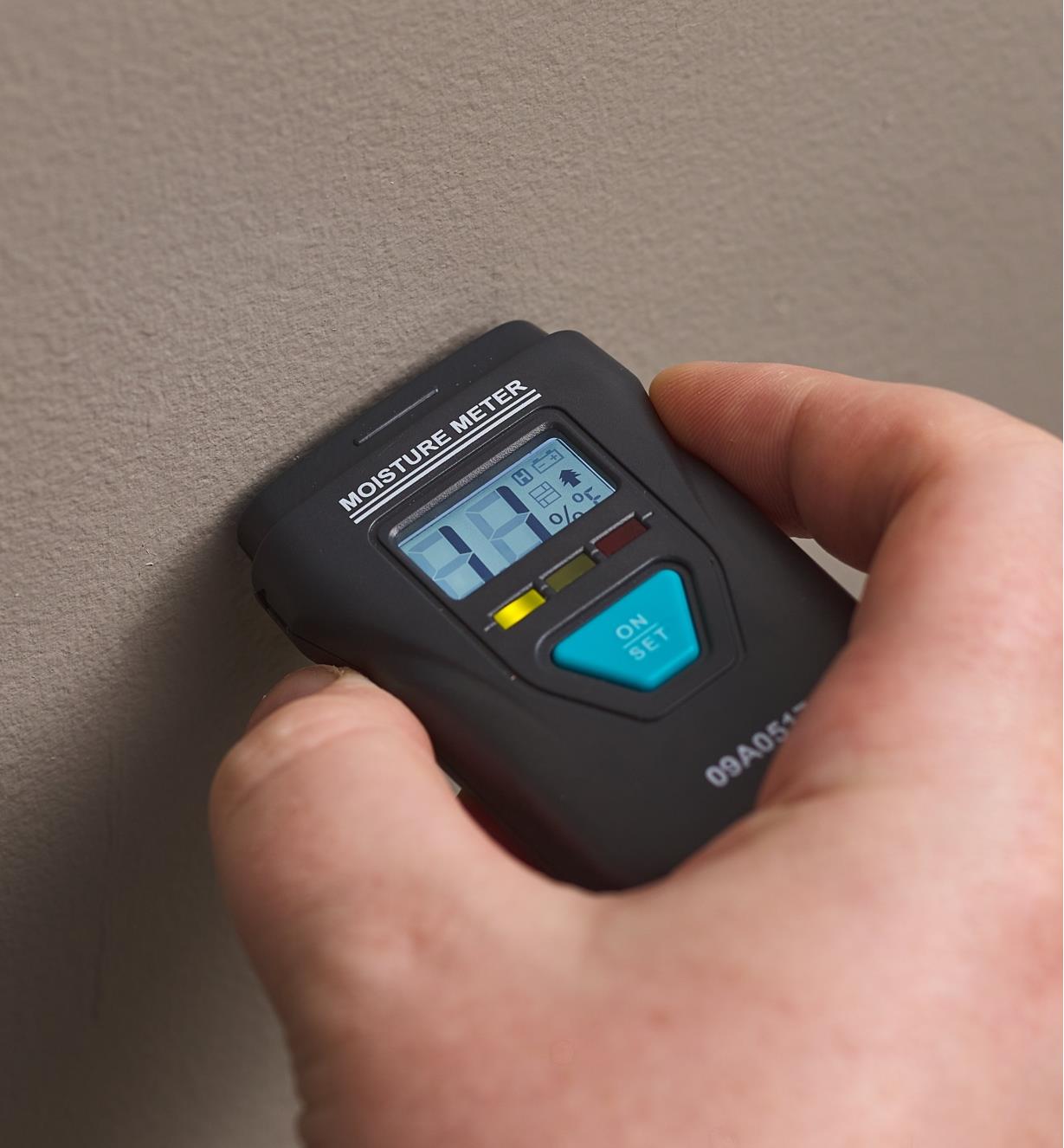The Ultimate Guide to Moisture Meters: A Comprehensive Overview and Just How They Can Conserve You Cash
Dampness meters serve as vital tools in spotting and checking moisture content in materials, helping in preventing pricey problems and making certain the high quality of products. Recognizing the nuances of different types of wetness meters, their applications, and the potential cost-saving advantages they offer can be a game-changer for specialists and businesses alike.
Kinds Of Moisture Meters
One usual type is the pin-type moisture meter, which measures the electric resistance in between two pins placed into a product. Pinless moisture meters, on the other hand, use electromagnetic sensor plates to scan a larger area without triggering damages to the material's surface.

Furthermore, there are also specialized dampness meters made for certain products like grain, soil, or hay. These meters provide precise dampness analyses customized to the distinct buildings of the material being checked. Infrared wetness meters determine the thermal residential or commercial properties of a material to determine its moisture web content non-invasively, making them valuable for applications where pin or pinless meters may not appropriate. Understanding the different types of dampness meters readily available can assist markets select one of the most appropriate tool for their particular moisture measurement needs.

Benefits of Making Use Of Dampness Meters
Moisture meters offer invaluable benefits in precisely keeping an eye on and analyzing dampness degrees in diverse products and atmospheres (Moisture Meter). Among the primary benefits of using wetness meters is the avoidance of potential damages caused by excess moisture. By identifying and addressing high dampness levels early, wetness meters help to protect against mold development, rot, and architectural damage in buildings, conserving both money and time on repair services. Furthermore, moisture meters aid in ensuring the top quality of materials during building and construction or production processes. By properly measuring dampness content, these devices help keep the stability of timber, drywall, concrete, and various other products, decreasing the risk of flaws or failings.
Moreover, using wetness meters can cause enhanced energy performance. By identifying areas with high dampness levels, such as leaks or bad insulation, modifications can be made to boost energy preservation and minimize utility costs. In agricultural setups, moisture meters play an essential duty in enhancing crop returns by making it possible for farmers to keep track of soil moisture levels and make educated irrigation choices. On the whole, the advantages of making use of dampness meters cover across numerous sectors, offering cost-effective services and advertising far better quality assurance methods.
Exactly How to Pick the Right Dampness Meter
When choosing a moisture meter, it's necessary to guarantee that the meter is suitable for the certain material you will be testing. Various materials have varying electric properties that can impact wetness readings, so selecting a meter created for your material is essential for exact outcomes. By meticulously examining these factors, you can pick a dampness meter that satisfies your requirements and offers precise moisture measurements for your jobs.
Proper Methods for Dampness Meter Use

Price Financial Savings With Dampness Meter Applications
Exactly how can the tactical usage of dampness meters result in substantial price financial savings throughout various markets? Moisture meters play a crucial function in price savings by protecting against prospective damage and making certain top quality control in different fields. In the farming industry, moisture meters aid in identifying the ideal time for harvesting plants, avoiding excess or over-drying moisture that can influence the last product's high quality. This exact tracking aids farmers prevent unneeded losses and optimize their return.
Similarly, in building and construction, wetness meters help prevent costly damages by finding moisture degrees in building products, such as wood or concrete, which can cause structural concerns if not resolved without delay. By determining issue areas at an early stage, contractors can take restorative procedures to avoid substantial repair services or substitutes, eventually saving money and time.
Additionally, in the food handling market, wetness meters are necessary for keeping an eye on item high quality and making sure conformity with safety and security guidelines. By precisely gauging wetness content in food items, makers can protect against perishing, maintain freshness, and minimize waste, resulting in considerable cost financial savings. Generally, the calculated application of moisture meters is a beneficial financial investment that can lead to substantial price decreases and enhanced performance throughout numerous sectors.
Verdict
To conclude, wetness meters are beneficial devices for gauging and identifying dampness degrees in various products. By making use of the ideal moisture meter and complying with correct techniques, individuals can efficiently avoid expensive problems triggered by excess wetness. Investing in a quality dampness meter can lead to considerable Get the facts expense financial savings in the lengthy run by determining prospective problems early on and enabling prompt remediation. Eventually, wetness meters are crucial instruments for keeping the honesty and longevity of structures and materials.
Moisture meters serve as important tools in discovering and keeping track of moisture material in products, aiding in stopping expensive problems and guaranteeing the quality of products. Infrared moisture meters measure the thermal buildings of a product to determine its moisture content non-invasively, making them useful for applications where pin or pinless meters may not be ideal.Moisture meters offer invaluable benefits in accurately evaluating and keeping an eye on wetness degrees in diverse products and atmospheres. In farming setups, wetness meters play a critical function in maximizing crop yields by enabling farmers to keep track of soil dampness degrees and make educated watering choices.In verdict, moisture meters are useful tools for detecting and determining dampness degrees in numerous materials.